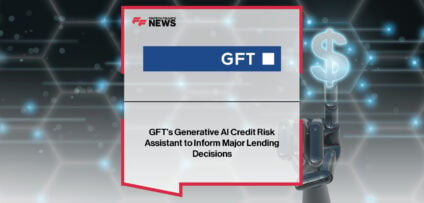Breaking News

Transforming Customer Payment Journeys: NatWest’s API Integration Journey
NatWest, one of the largest banks in the United Kingdom, is on a mission to provide its customers with more convenient and seamless payment options.
To achieve this goal, the bank has embarked on a journey to API-enable all customer payment journeys.
Below, we’ll take a closer look at what this means and how NatWest is approaching this transformation.
What are APIs, and why are they important?
API stands for Application Programming Interface, which is a set of protocols and tools used to build software applications.
APIs allow different software systems to communicate with each other, which is essential for creating seamless user experiences. By leveraging APIs, companies can integrate different services and functionalities to create new products and services that meet their customers’ needs.
In the context of banking, APIs allow different financial institutions and third-party providers to access and exchange customer data securely.
This enables banks to provide their customers with more convenient and innovative payment options, such as mobile payments, digital wallets, and instant payments.
NatWest’s API-Enabled Payment Journey
NatWest is committed to providing its customers with more convenient and seamless payment options. To achieve this goal, the bank has started to API-enable all customer payment journeys. This means that the bank is integrating APIs across its entire payments infrastructure, from account verification to transaction processing and settlement.
NatWest is leveraging open banking APIs to enable third-party providers to access its customer data securely. By doing so, the bank can offer its customers a wider range of payment options and improve the user experience. For example, NatWest has launched a mobile app that allows customers to pay bills, transfer money, and manage their accounts on the go.
The bank is also using APIs to streamline its internal processes and improve operational efficiency. By integrating different systems and services, NatWest can automate manual processes, reduce errors, and speed up transaction processing. This allows the bank to provide faster and more reliable payment services to its customers.
Challenges and Opportunities
API-enablement is not without its challenges. One of the biggest challenges is ensuring the security and privacy of customer data. Banks must comply with strict regulations and standards to protect customer data from cyber threats and other security risks.
Another challenge is ensuring the interoperability of different systems and services. Banks must ensure that their APIs can communicate with third-party providers’ APIs seamlessly. This requires standardization of API protocols and data formats.
Despite these challenges, API-enablement presents significant opportunities for banks. By leveraging APIs, banks can create new revenue streams and expand their customer base. They can also provide their customers with more convenient and innovative payment options, which can improve customer loyalty and satisfaction.
Final Thoughts
NatWest’s journey to API-enable all customer payment journeys is a testament to the bank’s commitment to providing its customers with more convenient and seamless payment options.
By leveraging APIs, NatWest can offer its customers a wider range of payment options and improve the user experience. The bank can also streamline its internal processes and improve operational efficiency, which allows it to provide faster and more reliable payment services to its customers.
While API-enablement presents its challenges, it also presents significant opportunities for banks. By embracing APIs, banks can create new revenue streams and expand their customer base. They can also provide their customers with more convenient and innovative payment options, which can improve customer loyalty and satisfaction.
- Cheaper, Faster… Riskier: Over Half Of Brits Plan To Use ChatGPT For Completing Their Tax Returns Read more
- Tuum and Abwab.ai Partner to Deliver End-to-End SME Lending Solutions in the Middle East Read more
- Tuum Powers Bank CenterCredit’s Digital Transformation, Setting a Blueprint for BaaS and Core Modernization in Global Banking Read more
- GFT’s Generative AI Credit Risk Assistant to Inform Major Lending Decisions Read more
- Yuno Launches NOVA, AI Agents to Turn Payment Friction Into Growth; Merchants Recover Up To 75 Percent of Failed Transactions Read more











